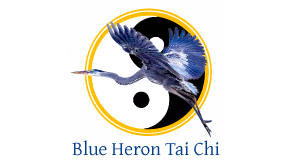John Haskovec sent me a link to a video called The Science of Yoga. If you replace the label Yoga with Tai Chi throughout the article, it still rings true. I know this is preaching to the choir, but sometimes it is good to remind ourselves why we want to keep on this path.
One of the best reasons to practice Tai Chi is it is good for you. Scientific experiments with control groups report consistent measurable improvements in many areas:
- Depression
- Blood pressure
- Better balance
- Mental health resilience
- Reports of more positive, and fewer negative experiences
- Reduced anxiety and stress
If you move, relax, and breathe with mindful attention, scientific studies using control groups and monitored subjects report, significant results can be achieved. It doesn’t take much. The research reported in this article reported that the Yoga practitioners averaged 12 minutes of practice a day.
The catch? You must do it yourself. No one else can do it for you.
One of the aspects we emphasize in Tai chi is coordinating breath with movement. We want to encourage long, full, breaths that fully expand the lungs using the shoulders, ribs, and diaphragm.
Breathing with space. This not only increases the capacity of the lungs, but it affects your mental space, your physical space, and your inter-cellular space. In the book What is Chi? There are long passages devoted to creating space within the body. The Science of Yoga article reported that there are measurable changes to nerve, circulatory, and cellular structure in Yoga practitioners. The words that Yoga and Tai Chi use to describe this effect are different, but the processes and the results are similar.
Clearing out thoughts, toxins, and sludge helps the free flow of chemical processes, nerve communication, and energy flow throughout the body. New measurement processes like CT Scans and chemical testing are revealing more about the internal bodily changes that take place. These changes are small but significant changes that take place over time. We keep talking about energy in the form of Qi. As of yet, science isn’t able to detect this, but I’m thinking it is only a matter of time.
One of the most important benefits of doing Tai Chi on a regular basis is the ability to manage stress. Stress is one of the major instigators of disease in the body. Uncontrolled, continuous stress wears the body down, burns out nerves, creates inflammation, and eventually results in medical problems and physical breakdown. Western medicine focuses on reducing the symptoms, but rarely repairs the source of the problem.
Tai Chi and Yoga get to the heart of the matter. Pun intended. The process makes minute positive changes over time that accumulate to turn the body, the mind, and the spirit into a less stressed, less inflamed system.
The good news: you have everything you need. It doesn’t take expensive equipment, fancy clothes, special shoes, or a student loan to study Tai chi. It does take practice. Mindful practice.
Your body is not just a conglomeration of runaway chemical processes all tumbling willy-nilly through your bloodstream. It is a system of self-regulating, self-healing processes continuously undergoing maintenance, growth, and stabilization. On a good day. You get to make decisions throughout the day that can make it a good day, or a bad day.
You know the difference, but you tend to get into habits that aren’t necessarily healthy. Habits like:
- Expending way more energy than you can easily replenish.
- Staying awake too long so there is no time to recover.
- An extended state of anxiety, anger, or intense excitement that throws your entire chemical and emotional being into a lopsided tizzy.
You know the results. They are called indigestion, hangovers, sore muscles, groggy mornings, fuzzy thinking, and regrets.
On the other hand, you can make it a good day by eating well, exercising enough to maintain a healthy body without stressing it, and allowing yourself the luxury of mindful meditation with relaxed slow full breaths, and thoughts that include gratitude, blessings and… Hey! Here’s a thought! Fewer thoughts.
The results are a comfortable body, clearer thinking, the ability to respond to events in a positive, open manner, and a calm, positive outlook.
But then you knew all this. Here I go again, preaching to the choir.
